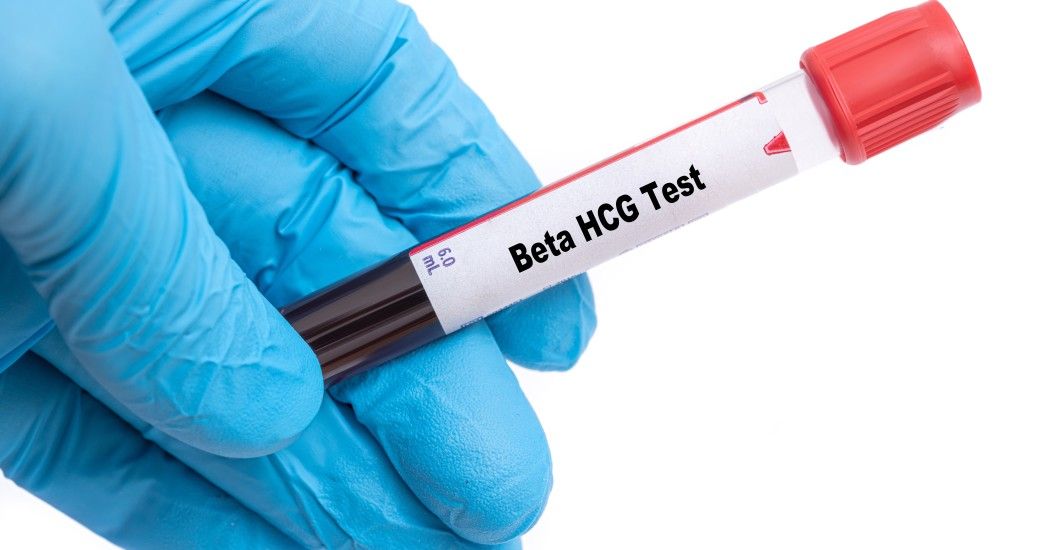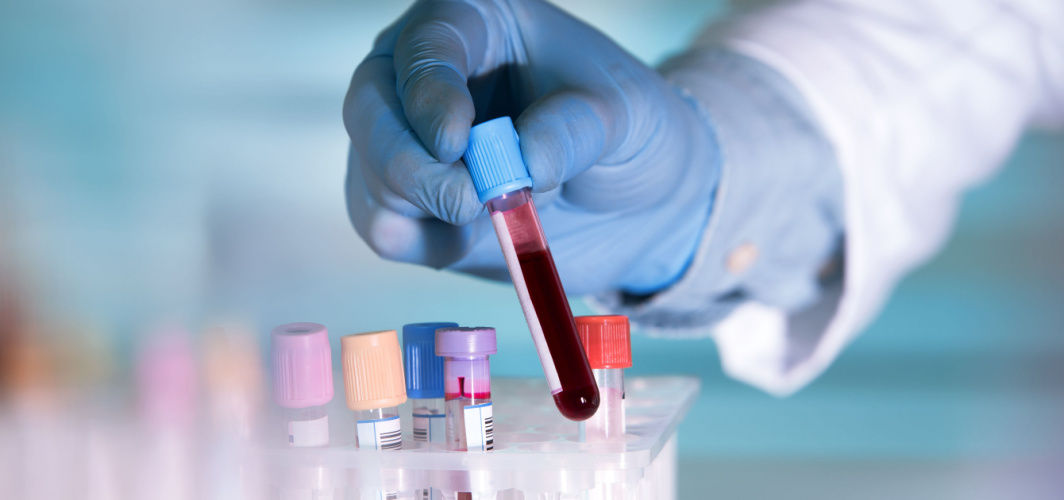General Health
Missed Your Periods? Take a Pregnancy Test (Beta hCG Test) to Confirm
6 min read
By Apollo 24|7, Published on - 28 May 2025
Share this article
0
0 like

Missing your period can be a moment of uncertainty, whether you're hoping to be pregnant or not. One of the most reliable ways to find out what’s happening in your body is through a pregnancy test. But did you know that there are different types of pregnancy tests, including one called the beta hCG blood test?
This article will walk you through a pregnancy test, how it works, and why your doctor might recommend a beta hCG test. Understanding this simple but powerful diagnostic tool can help you take timely and informed steps toward your health and reproductive goals.
What Is a Pregnancy Test and How Does It Work?
A pregnancy test detects the presence of human chorionic gonadotropin (hCG), a hormone produced after a fertilised egg implants in the uterus. This typically occurs 6 to 10 days after conception.
There are two main types of pregnancy tests:
1. Urine Pregnancy Test
- Available over-the-counter (OTC) at pharmacies.
- Simple to use, providing results within minutes.
- Detects hCG qualitatively, indicating a positive or negative result.
- Most accurate when taken a few days after a missed period.
2. Beta hCG Blood Test
- Performed at a clinic or laboratory.
- Can be quantitative, measuring the exact amount of hCG in the blood.
- More sensitive and accurate than urine tests.
- Often used to confirm early pregnancy or monitor pregnancy progression.
Both tests are reliable, but they serve different purposes— urine tests offer quick results, while blood tests provide detailed hormone levels for medical evaluation.
What Is the hCG Hormone and Why Is It Important in Pregnancy Tests?
Human chorionic gonadotropin (hCG) is a hormone produced by the placenta shortly after a fertilised egg implants in the uterus. It plays a crucial role in supporting early pregnancy by maintaining the corpus luteum, which produces progesterone, a hormone essential for sustaining the uterine lining and promoting fetal development.
Key Functions of hCG:
- Maintains the corpus luteum, ensuring continued progesterone production.
- Supports uterine lining thickening, creating a stable environment for the embryo.
- Promotes fetal development, particularly in the first trimester.
Since hCG is the first hormone produced in pregnancy, it is the primary marker detected in pregnancy tests. Monitoring hCG levels can also provide insights into pregnancy viability and health, helping doctors assess potential complications.
Beta hCG Blood Test vs. Urine Pregnancy Test: What’s the Difference?
- Qualitative vs. Quantitative hCG Tests
- Urine pregnancy tests are typically qualitative, meaning they provide a simple “yes” or “no” answer based on the presence of hCG hormone in urine.
Beta hCG blood tests can be either:
- Qualitative: Confirms the presence of hCG, similar to urine tests.
- Quantitative: Measures the exact concentration of hCG in the blood (in mIU/mL), providing more detailed insights into pregnancy progression.
Why Doctors Prefer Beta hCG Blood Tests
Doctors may recommend a beta hCG blood test for:
- Earlier and more sensitive pregnancy detection, as blood tests can detect hCG earlier than urine tests, often before a missed period.
- Monitoring hCG levels over time, ensuring normal pregnancy progression.
- Evaluating suspected complications, such as ectopic pregnancy or miscarriage.
- Tracking implantation and embryo development in fertility treatments.
When Should You Take an hCG Blood Test for Reliable Results?
Timing is key when taking an hCG blood test to confirm pregnancy. Testing too early may result in a false negative, as hCG levels may not be high enough for detection.
Ideal Timing for an hCG Blood Test:
- Earliest Detection: A beta hCG blood test can detect pregnancy as early as 6–8 days after ovulation.
- Best Accuracy: For the most reliable results, testing 11–14 days after ovulation or a few days after a missed period is recommended.
Why Timing Matters:
- Testing too soon may lead to a negative result, even if pregnancy has occurred.
- hCG levels double every 48–72 hours in early pregnancy, so waiting a few days can improve accuracy.
- Doctors may recommend repeat testing to monitor hCG rise and confirm pregnancy progression.
How to Prepare for a Beta hCG Blood Test?
- Preparing for a Beta hCG blood test is simple and requires minimal effort.
- Inform your doctor about any medications, supplements, or fertility treatments you are taking.
- Fasting is generally not required, but follow your doctor’s instructions if advised.
- Drink plenty of water before the test to help with blood collection.
- Wear loose-fitting sleeves to ensure easy access to your arm during the blood draw.
Have more questions?
What to Expect During the Beta hCG Blood Test Process?
A Beta hCG blood test is a simple and quick procedure performed in a clinic or laboratory to measure hCG levels in the blood. Here’s how:
- Blood Sample Collection: A healthcare professional will clean the skin on your arm and draw a small blood sample from a vein using a sterile needle.
- Laboratory Analysis: The sample is sent to a lab for testing, where hCG levels are measured.
- Results: Test results are typically available within a day or two, and your doctor will review them to assess pregnancy progression or potential concerns.
You may experience a small bruise or minor discomfort at the site, but most people resume normal activities immediately after.
Interpreting Beta hCG Results
Beta hCG levels vary widely among individuals and pregnancies, making interpretation context-dependent. While general reference ranges exist, factors such as implantation timing, multiple pregnancies, and medical conditions can influence results.
General Beta hCG Reference Ranges:
- < 5 mIU/mL → Not pregnant.
- 5–25 mIU/mL → Possible pregnancy; retesting in 48 hours is recommended.
- ≥ 25 mIU/mL → Confirmed pregnancy.
How hCG Levels Change in Early Pregnancy:
- hCG levels double approximately every 48–72 hours in a healthy pregnancy.
- Peak levels occur between 8–11 weeks, then gradually decline.
- Slower-than-expected hCG rise may indicate ectopic pregnancy or miscarriage risk.
- Higher-than-normal hCG levels may suggest multiple pregnancies or molar pregnancy.
Your doctor may order repeat beta hCG tests 48 hours apart to track changes and may also recommend an ultrasound to confirm gestational development.
What to Do After a Positive Pregnancy Test or hCG Blood Test Result?
If your pregnancy test or Beta hCG blood test confirms pregnancy, here’s what to do next:
- Take a Second Test (Optional): If you want extra confirmation, retest in 48 hours, as hCG levels double every 2 to 3 days.
- Schedule a Doctor’s Appointment: Contact your OB-GYN or healthcare provider to begin prenatal care.
- Start Prenatal Vitamins: Folic acid and other essential nutrients support healthy fetal development.
- Avoid Harmful Substances: Stop smoking, alcohol, and certain medications that may affect pregnancy.
Conclusion
Missing your period is often the first sign that leads women to consider pregnancy. While at-home urine tests offer a quick answer, the beta hCG blood test provides a more sensitive, accurate, and informative assessment, especially in early pregnancy or when complications are suspected.
Understanding how hCG works, when to test, and what results mean can reduce anxiety and empower you to take timely action. Whether you’re planning a pregnancy or facing uncertainty, speaking with a healthcare provider is the best way to ensure safe and informed care moving forward.
General Health
Leave Comment
Recommended for you

General Health
Most Common Sleeping Habits: Identify The Good & Bad Ones
Getting enough sleep for at least 7-8 hours daily is very important to ensure good health. The quality and amount of sleep you get depends on a myriad of factors, of which the most important one is your sleeping habits.

General Health
What is a Blood Culture Test and When Should You Take It?
Learn about the importance of the Blood Culture Test, when to consider it, and how it aids in diagnosing various infections and illnesses.

General Health
First Aid For Dog Bite: Kit, Home Care, And Prevention
Dog bites can be a frightening experience, and knowing how to provide immediate first aid is crucial to minimize the risk of infection and promote proper wound healing.
Subscribe
Sign up for our free Health Library Daily Newsletter
Get doctor-approved health tips, news, and more.
Visual Stories

Science-backed Home Remedies for Burns and Blisters
Tap to continue exploring
Recommended for you

General Health
Most Common Sleeping Habits: Identify The Good & Bad Ones
Getting enough sleep for at least 7-8 hours daily is very important to ensure good health. The quality and amount of sleep you get depends on a myriad of factors, of which the most important one is your sleeping habits.

General Health
What is a Blood Culture Test and When Should You Take It?
Learn about the importance of the Blood Culture Test, when to consider it, and how it aids in diagnosing various infections and illnesses.

General Health
First Aid For Dog Bite: Kit, Home Care, And Prevention
Dog bites can be a frightening experience, and knowing how to provide immediate first aid is crucial to minimize the risk of infection and promote proper wound healing.